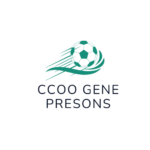Sports Nutrition Specialist
- Role of Sports Nutrition Specialists: They optimize dietary strategies tailored to athletes’ unique needs, enhancing performance and recovery through personalized meal plans and hydration guidance.
- Nutritional Foundations: Proper nutrition, including the right balance of macronutrients and micronutrients, is crucial for maximizing athletic performance and supporting recovery.
- Qualifications Matter: Sports nutrition specialists typically have a degree in nutrition or dietetics and often hold certifications from recognized organizations, ensuring their expertise in the field.
- Comprehensive Services: These specialists provide services such as personalized nutrition plans and performance analysis to help athletes achieve specific training goals and improve performance outcomes.
- Emerging Trends: Contemporary trends in sports nutrition include plant-based diets, personalized nutrition, nutrient timing, and technological integration to enhance athletes’ dietary practices.
- Evidence-Based Practices: Sports nutrition specialists rely on current research and evidence-based strategies to inform their recommendations, ensuring athletes receive the best possible nutritional support.
 In the fast-paced world of sports, athletes are constantly seeking an edge to enhance performance and recovery. This is where a sports nutrition specialist steps in, playing a crucial role in optimizing dietary strategies tailored to an athlete’s unique needs. By understanding the intricate relationship between nutrition and physical performance, these experts help athletes fuel their bodies effectively.
In the fast-paced world of sports, athletes are constantly seeking an edge to enhance performance and recovery. This is where a sports nutrition specialist steps in, playing a crucial role in optimizing dietary strategies tailored to an athlete’s unique needs. By understanding the intricate relationship between nutrition and physical performance, these experts help athletes fuel their bodies effectively.
Whether it’s refining meal plans or advising on hydration strategies, sports nutrition specialists provide invaluable insights that can make all the difference in an athlete’s training and competition. As more athletes recognize the importance of nutrition, the demand for these specialists continues to grow, emphasizing their vital contribution to achieving peak performance.
What Is a Sports Nutrition Specialist?
A sports nutrition specialist focuses on optimizing nutrition for athletes and active individuals. They assess the unique dietary needs of athletes to enhance performance, recovery, and overall health. These specialists design personalized meal plans, ensuring athletes receive the right balance of macronutrients and micronutrients.
Sports nutrition specialists also provide guidance on hydration strategies. They recommend specific fluid intake based on individual needs and sport requirements. Proper hydration significantly impacts endurance, strength, and recovery.
Education and certification play crucial roles in this field. Most sports nutrition specialists hold degrees in nutrition or dietetics, often accompanied by additional certification from recognized organizations. They stay updated on the latest research and dietary trends, applying evidence-based approaches to their practice.
In addition, sports nutrition specialists work collaboratively with coaches, trainers, and athletes. This teamwork fosters a comprehensive understanding of each athlete’s goals and challenges, allowing for integrated support in achieving optimal performance.
Importance of Sports Nutrition
Sports nutrition plays a critical role in maximizing athletic potential and recovery rates. Proper nutritional strategies directly influence performance outcomes and recovery cycles for athletes.
Enhancing Athletic Performance
Nutrition serves as the foundation for athletic performance. Athletes require precise macronutrient ratios, including carbohydrates, proteins, and fats, to fuel intense training sessions and competitions. Carbohydrates provide the primary source of energy during exercise, while proteins support muscle repair and synthesis. Tailored meal plans ensure athletes receive adequate vitamins and minerals necessary for optimal physiological function. Additionally, timing nutrition around workouts—known as nutrient timing—enhances energy availability and improves overall performance. Research indicates that athletes who follow personalized nutrition plans often achieve better results, reflecting the essential role of sports nutrition specialists in this process.
Supporting Recovery
Proper nutrition significantly aids in recovery after physical exertion. Immediate post-workout nutrition, including protein and carbohydrates, helps replenish glycogen stores and repairs muscle tissues. Sports nutrition specialists emphasize the importance of hydration strategies, as fluid loss can hinder recovery and performance. Adequate hydration accelerates nutrient delivery and waste removal, vital for muscle repair. Furthermore, incorporating specific micronutrients, such as antioxidants, can reduce oxidative stress and inflammation, promoting faster recovery. By offering customized recovery nutrition plans, sports nutrition specialists enable athletes to bounce back more efficiently from training and competitive efforts.
Key Qualifications of a Sports Nutrition Specialist
Sports nutrition specialists require specific qualifications to effectively support athletes in enhancing performance through tailored nutrition. Key areas of focus include education and certification, alongside essential skills and expertise.
Education and Certification
Sports nutrition specialists typically hold at least a bachelor’s degree in nutrition, dietetics, or a related field. This educational background equips them with foundational knowledge about human physiology and nutritional science. Many pursue advanced degrees or specialized training in sports nutrition for additional expertise. Certification from recognized organizations, such as the Academy of Nutrition and Dietetics or the International Society of Sports Nutrition, enhances credibility and demonstrates proficiency in sports-specific nutrition strategies. Continuous professional development through workshops, seminars, and certifications ensures they stay current with the latest research and practices in the field.
Skills and Expertise
Sports nutrition specialists must possess several key skills to effectively support athletes.
- Assessment Skills: They analyze athletes’ dietary habits, body composition, and performance metrics to create personalized meal plans.
- Communication Skills: They convey complex nutritional information in an accessible manner to athletes, coaches, and teams.
- Analytical Skills: They evaluate research findings and integrate evidence-based practices into customized nutrition strategies.
- Team Collaboration: They work closely with coaches and sports medicine professionals to align nutrition plans with overall training objectives.
- Nutritional Knowledge: They maintain expertise in macronutrients and micronutrients, hydration needs, and dietary supplements specific to sports performance.
These skills ensure that sports nutrition specialists effectively guide athletes toward optimizing their nutrition for superior performance and recovery.
Services Offered by Sports Nutrition Specialists
Sports nutrition specialists provide comprehensive services tailored to enhance athletic performance and recovery through effective dietary strategies.
Personalized Nutrition Plans
Personalized nutrition plans form the cornerstone of a sports nutrition specialist’s services. They assess an athlete’s unique dietary needs, considering factors such as age, weight, training intensity, and specific goals. These specialists create custom meal plans that balance macronutrients—carbohydrates, proteins, and fats—specific to the athlete’s sport. For example, endurance athletes may require higher carbohydrate intake for sustained energy, while strength athletes often benefit from an increased focus on protein for muscle repair. Specialists also adjust plans according to workout schedules, ensuring optimal fueling before and after training sessions. This tailored approach maximizes energy availability while promoting muscle recovery.
Performance Analysis
Performance analysis is integral to the role of sports nutrition specialists. They evaluate an athlete’s performance metrics alongside dietary habits to identify correlations between nutrition and performance outcomes. Assessments may include metabolic rate testing, body composition analysis, and monitoring energy levels during training. By comparing this data, specialists can fine-tune nutrition strategies to target specific performance goals, whether enhancing endurance, improving strength, or accelerating recovery. Ongoing analysis allows specialists to adapt athletes’ nutritional plans as their training regimes and performance levels evolve, ensuring continuous improvement.
Trends in Sports Nutrition
Sports nutrition is evolving rapidly, influenced by scientific advancements and changing athlete needs. Contemporary trends reflect a focus on specific diets, supplementation, and technology integration in nutrition planning.
Plant-Based Diets
Plant-based diets gain popularity among athletes for health and ethical reasons. This trend includes increased consumption of fruits, vegetables, whole grains, nuts, and seeds. These foods provide essential nutrients, including carbohydrates, fiber, and phytonutrients, which support overall health and performance.
Personalized Nutrition
Personalized nutrition tailors dietary strategies to individual athlete profiles. Specialists utilize data from metabolic testing, genetic profiles, and performance metrics to design optimal meal plans. These targeted strategies cater to specific needs, enhancing performance and recovery rates effectively.
Nutrient Timing
Nutrient timing emphasizes the strategic intake of nutrients around training and competition. Athletes consume specific macronutrients before, during, and after exercise to maximize energy availability and recovery. This trend involves pre-workout carbohydrates for fueling, protein post-workout for muscle repair, and hydration strategies for optimal performance.
Functional Foods
Functional foods, which provide health benefits beyond basic nutrition, are increasingly popular in sports nutrition. Foods rich in probiotics, omega-3 fatty acids, and antioxidants help enhance performance, reduce inflammation, and support recovery. Incorporating these foods into meal plans can optimize an athlete’s overall well-being.
Technological Integration
Technological integration transforms sports nutrition practices. Mobile apps, wearable devices, and online platforms allow athletes to track their nutrition, hydration, and performance data in real-time. This access to information enables real-time adjustments to dietary plans, ensuring optimal fueling strategies.
Sustainability in Nutrition
Sustainability trends influence sports nutrition choices, guiding athletes toward environmentally friendly dietary options. This includes selecting locally sourced foods, reducing meat consumption, and minimizing food waste. Sustainable practices not only benefit the environment but also promote a healthier lifestyle for athletes.
Evidence-Based Approaches
Evidence-based approaches remain at the forefront of sports nutrition. Specialists utilize current research to inform their practices, ensuring that recommendations reflect the latest findings in performance nutrition. This trend supports the ongoing evolution of nutritional strategies to meet the changing needs of athletes.
Supplementation Trends
 Supplementation trends focus on safe and effective products that enhance athletic performance. Popular supplements include protein powders, branched-chain amino acids, and creatine. Sports nutrition specialists guide athletes in choosing appropriate supplements based on their specific training goals and dietary requirements.
Supplementation trends focus on safe and effective products that enhance athletic performance. Popular supplements include protein powders, branched-chain amino acids, and creatine. Sports nutrition specialists guide athletes in choosing appropriate supplements based on their specific training goals and dietary requirements.
By staying informed about these trends, sports nutrition specialists can better support athletes in achieving their performance goals through tailored dietary strategies.
The Expertise of Sports Nutrition Specialists is Invaluable for Athletes Aiming to Reach Their Full Potential
The expertise of sports nutrition specialists is invaluable for athletes aiming to reach their full potential. By providing personalized meal plans and hydration strategies, they ensure that athletes meet their unique dietary needs. This tailored approach not only enhances performance but also accelerates recovery.
As the field of sports nutrition continues to evolve, these specialists stay at the forefront of emerging trends and research. Their comprehensive understanding of nutrition’s role in athletic success makes them essential partners for athletes and coaches alike. Investing in a sports nutrition specialist can lead to significant improvements in both performance and overall health.

